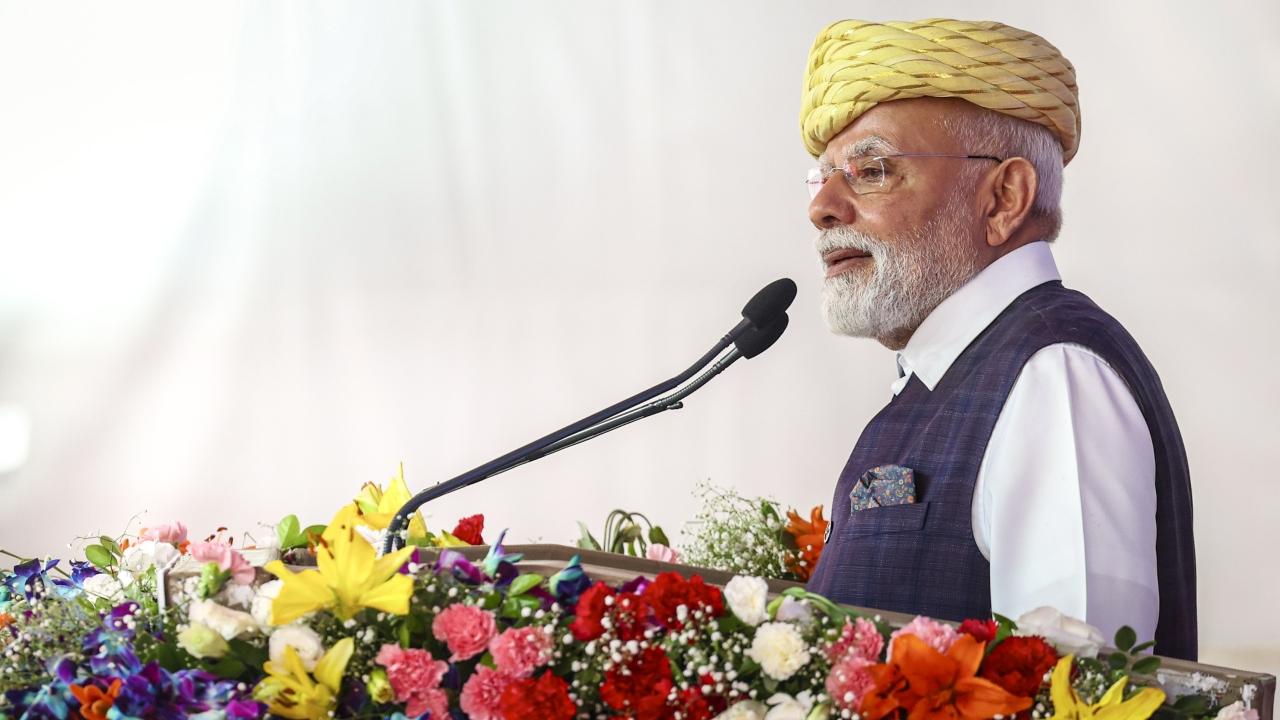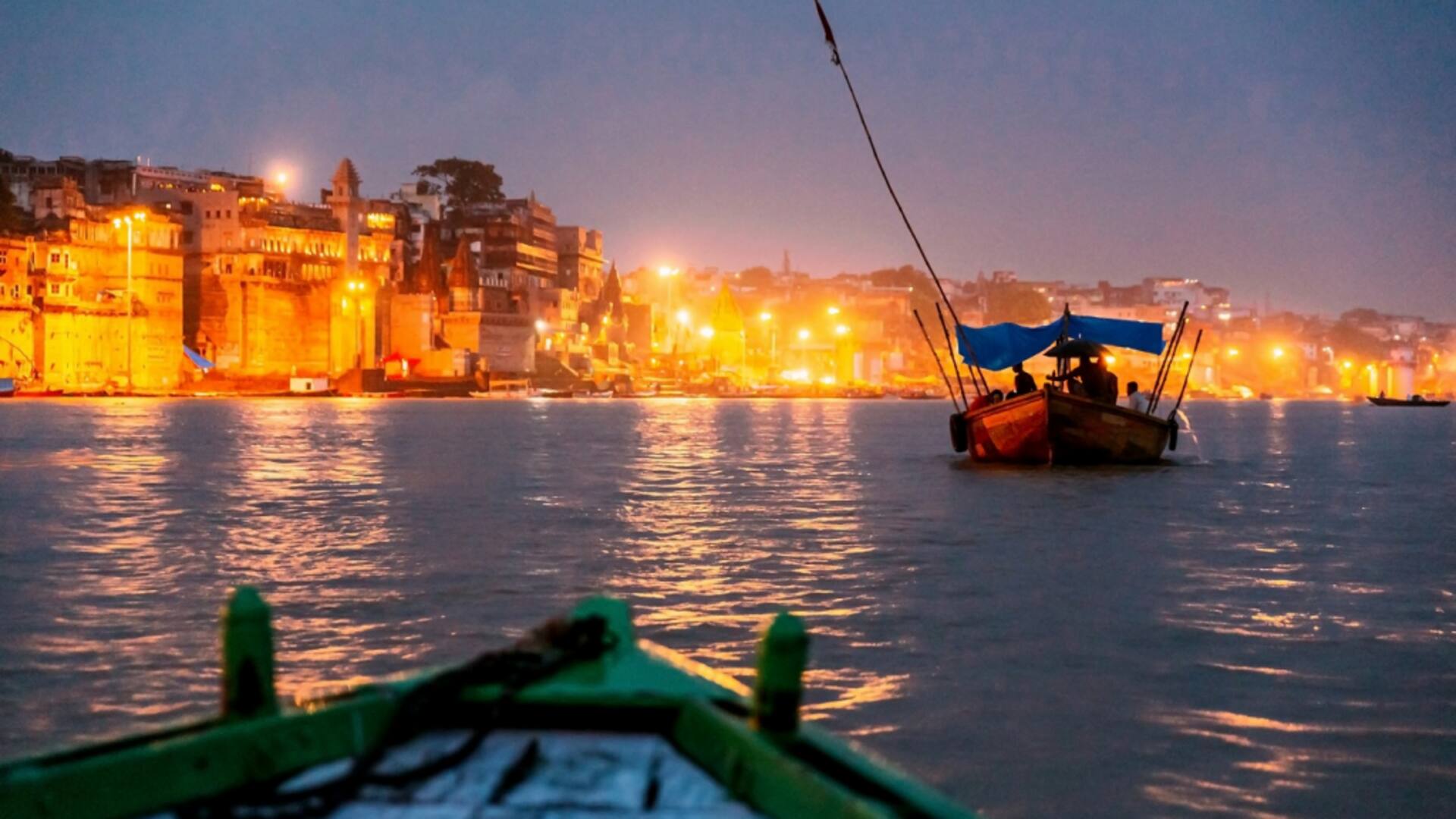India is moving forward with the spirit of global brotherhood, and today, it has no major enemy in the world. However, Prime Minister Narendra Modi emphasized that India’s biggest adversary is its dependence on other nations, a challenge that must be collectively overcome.
PM Modi asserted that greater foreign dependence leads to greater national failure, as reported by PTI. For global peace, stability, and prosperity, the world’s most populous country must become self-reliant. He cautioned that reliance on others compromises national self-respect.
“The future of 140 crore Indians cannot be left to external forces, nor can the resolve for national development be based on foreign dependence,” the Prime Minister stated. He reiterated that the future of the coming generations cannot be entrusted to others. “If a country with a population of 140 crore is dependent on others, it compromises national self-respect,” he added.
Drawing an analogy, PM Modi remarked, “As per a popular saying, pain of 100 kinds has only one remedy; similarly, all problems of India have one solution, and that is aatmanirbharta (self-reliance).”
He also took a jibe at the Congress party, saying that the talent of young people was suppressed after Independence by the then ruling party, which introduced the license raj. “As a result of consistently ignoring India’s inherent strengths, the country couldn’t achieve the success it truly deserved even after six to seven decades of freedom,” Modi said. He blamed prolonged entanglement in the license-quota regime and isolation from global markets as the main reasons for India’s stagnation, according to PTI.
When the era of globalisation began, the then governments focused solely on imports, leading to scams worth thousands of crores of rupees, the PM noted.
Citing India’s shipping sector as an example of the damage caused by flawed policies, PM Modi highlighted that the country once had a very vibrant ship-building industry. Ships built in India’s coastal states powered both domestic and global trade. Even fifty years ago, India used domestically built ships for over 40 percent of its import-export activities.
“Till 50 years ago, our trade was carried out by 40 percent ships made in India, but this has now come down to just 5 percent,” he pointed out.
PM Modi further stated that India pays a staggering USD 75 billion or Rs 6 lakh crore every year to foreign shipping companies for their services. “Can people imagine how much money has been paid in freight to other countries over the past seven decades? This outflow of funds has created millions of jobs abroad. If even a small portion of this expenditure had been invested by earlier governments in the domestic shipping industry, the world would have been using Indian ships today, and India would have been earning lakhs of crores in shipping services,” he said.
He declared, “Chips (semiconductor chips) or ships, we must make them in India,” adding that domestic ports are the backbone of India’s rise as a global maritime powerhouse.
The Prime Minister noted that India’s maritime sector is now moving towards next-generation reforms. He announced that all major ports in the country will be freed from multiple documents and fragmented processes. The implementation of “One Nation, One Document” and “One Nation, One Port” processes will simplify trade and commerce, he said.
Modi also asserted that a series of reforms have been initiated in the maritime sector, with five maritime laws being introduced in new forms. A historic decision has been taken to strengthen the sector, with large ships now accorded infrastructure status, he added.
“Ship-building companies will now find it easier to secure loans from banks and will benefit from reduced interest rates. All benefits associated with infrastructure financing will now be extended to these ship-building enterprises,” said the PM.
According to him, the government is working on three major schemes to make India a major maritime power. These initiatives will ease financial support for the shipbuilding sector, help shipyards adopt modern technology, and improve design and quality standards. Over Rs 70,000 crore will be invested in the coming years, he said.
During Saturday’s event, Modi inaugurated and laid the foundation stone for maritime development projects worth more than Rs 7,870 crore. He also unveiled and laid the foundation stone for multiple projects of the Central and state governments worth more than Rs 26,354 crore across various sectors in Gujarat.
Later, the PM conducted an aerial survey of the Dholera Special Investment Region, a greenfield industrial hub located around 100 km south of Ahmedabad. He also reviewed the progress of the under-construction National Maritime Heritage Complex at Lothal in Ahmedabad district, which aims to showcase India’s maritime legacy.
Earlier in the morning, Modi participated in a roadshow upon his arrival in Bhavnagar.
https://www.mid-day.com/news/india-news/article/amid-the-tariff-war-pm-modi-says-india-s-biggest-enemy-is-dependence-on-other-nations-calls-for-self-reliance-23594999



